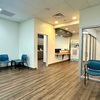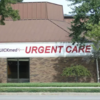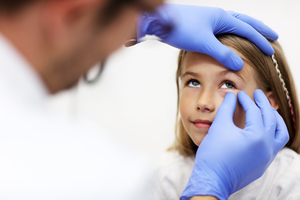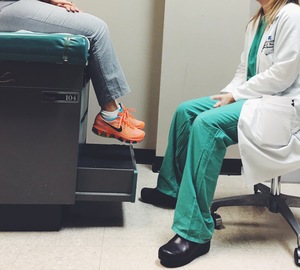Book an STD Test in University Heights, OH
Own a clinic? Add your location.
Help patients book appointments with you on Solv. It's free!
20 instant-book locations

Health Express Urgent Care, Shaker Heights
Health Express Urgent Care

Health Express Urgent Care, Mayfield Heights
Health Express Urgent Care

QUICKmed Urgent Care, Garfield Heights
QUICKmed Urgent Care

Health Express Urgent Care, Cleveland
Health Express Urgent Care

Health Express Urgent Care, Parma
Health Express Urgent Care

Health Express Urgent Care, Middleburg Heights
Health Express Urgent Care

AFC Urgent Care, Mentor
AFC Urgent Care

QUICKmed Urgent Care, Strongsville Urgent Care
QUICKmed Urgent Care

Health Express Urgent Care, North Olmsted
Health Express Urgent Care

Cle Care Medical Center
Cle Care Medical Center

Health Express Urgent Care, North Ridgeville
Health Express Urgent Care

Health Express Urgent Care, Avon Lake
Health Express Urgent Care

QUICKmed Urgent Care, Medina Urgent Care
QUICKmed Urgent Care
QUICKmed Urgent Care, Avon Urgent Care
QUICKmed Urgent Care

QUICKmed Urgent Care, Akron Urgent Care
QUICKmed Urgent Care

QUICKmed Urgent Care, Ravenna Urgent Care
QUICKmed Urgent Care

Labcorp at Walgreens, Cleveland
Labcorp at Walgreens
Self-pay pricing
Clear self-pay prices
No more surprise bills. Solv is committed to making getting healthcare as easy as buying groceries at the store, including knowing the price of care upfront.

Labcorp
Labcorp
Self-pay pricing
Clear self-pay prices
No more surprise bills. Solv is committed to making getting healthcare as easy as buying groceries at the store, including knowing the price of care upfront.

Quest Diagnostics
Quest Diagnostics
Self-pay pricing
Clear self-pay prices
No more surprise bills. Solv is committed to making getting healthcare as easy as buying groceries at the store, including knowing the price of care upfront.

Labcorp at Walgreens
Labcorp at Walgreens
Self-pay pricing
Clear self-pay prices
No more surprise bills. Solv is committed to making getting healthcare as easy as buying groceries at the store, including knowing the price of care upfront.
Own a clinic? Add your location.
Help patients book appointments with you on Solv. It's free!
Overview of STD Testing in University Heights
Who should get tested for STDs?
Anyone who is sexually active should consider getting tested for STDs, especially if they have multiple partners or are not consistently using protection. It's also important for those who are experiencing symptoms of an STD, such as unusual discharge, burning during urination, or sores, to get tested. However, many STDs can be asymptomatic, meaning they don't show any signs or symptoms. Therefore, regular testing is crucial even if you feel healthy. According to the CDC, it's recommended that all adults and adolescents from ages 13 to 64 get tested for HIV at least once.
Importance of getting tested
Getting tested for STDs is a vital part of maintaining your sexual health. Early detection can prevent serious health complications such as infertility, cancer, and organ damage. It can also prevent the spread of the disease to others. According to the CDC, STDs are a significant health challenge facing the United States, with nearly 20 million new cases each year. Regular testing can help reduce these numbers and improve overall public health.
Std testing options in University Heights, OH:
Urgent care and walk-in clinics
Urgent care and walk-in clinics offer convenient and immediate care. Health Express Urgent Care in nearby Mayfield Heights is a highly-rated option for same-day and next-day appointments. With Solv, you can easily book an appointment online.
Primary care providers
Primary care providers are another option for STD testing. They can provide comprehensive care and follow-up treatment if needed. However, appointments may not be available on the same day.
Free STD testing and community health centers
Community health centers often offer free or low-cost STD testing. While these centers provide an affordable option, they may have longer wait times.
At-home testing
At-home testing kits are another option for STD testing in University Heights. These kits can be ordered online, used at home, and then sent back to a lab for testing. Results are usually available within a few days.
Prevalence of STDs in University Heights
University Heights, located in Cuyahoga County, has seen an increase in STD cases over the years, similar to trends across the country. According to the CDC, the most common STDs in this area are chlamydia, gonorrhea, and syphilis. When compared to nearby cities such as Shaker Heights, Cleveland Heights, and South Euclid, University Heights has a lower prevalence rate. However, it's still crucial for residents to get regular testing.
Risk factors related to STDs in University Heights
Several factors contribute to the spread of STDs in University Heights. These include unprotected sex, multiple sexual partners, and lack of regular testing. Other factors such as substance abuse and lack of access to healthcare can also increase the risk of STDs. It's important for residents to be aware of these risks and take necessary precautions to protect their health.
Solv has strict sourcing guidelines and relies on peer-reviewed studies, academic research institutions, and medical associations. We avoid using tertiary references.
STD Testing FAQs
Where should I get an STD test in University Heights?
In a doctor's office, a health clinic, or an urgent care center, you can get an STD test. If you're experiencing symptoms, it's best to visit a doctor's office, where they can also treat you or issue you a prescription. While some University Heights clinics and urgent care centers allow walk-in appointments, it's advisable to make an appointment ahead of time to prevent excessive waits.
How long does it take to get STD test results?
Various testing are required for various STDs. Depending on the type of STD test you took, you may receive your results in two to ten days. Some outcomes may be immediately available. Your doctor may be able to diagnose an STD through a physical examination. In some cases, your doctor's office may only contact you if your test results are positive.
How much does an STD test cost in University Heights?
The cost of STD testing is governed by several factors, including where you are tested, the type of test you need, and if you have health insurance. Some University Heights clinics may offer free testing or testing on a sliding scale based on your income. Because of the cost, don't put off obtaining an STD test. With your doctor's office, discuss the cost and payment choices. Delaying STD treatment may have catastrophic implications.
Does insurance cover STD testing in University Heights?
The cost of STD testing is governed by a number of factors, including the location of the test, the type of test required, and whether or not you have health insurance. Some clinics may provide free or sliding-scale testing, depending on your income. Don't let the expense of an STD test deter you from getting one. With your doctor's office, discuss the price and payment choices. Delaying STD treatment could have catastrophic ramifications.
How do they test for STDs in University Heights?
There are around 20 different forms of STDs, each with its own set of diagnostic tests. No single test exists that can detect all types of STDs. Your doctor can help you figure out which tests you'll need. In STD testing, a blood sample or a urine sample may be used. Your doctor may also take a swab from the inside of your cheek, your vaginal area, or another potentially infected place.
What STDs can be detected by a blood test?
Blood tests are used to diagnose hepatitis B, hepatitis C, herpes, HIV, and syphilis. In a laboratory, a technician examines a blood sample for antibodies that the body has produced in reaction to disease. The virus's DNA can also be detected by several blood tests. Remember that if you've recently been exposed to an STD and your body hasn't yet produced antibodies, you could test negative even if you have the disease.
Can I get a same-day appointment for STD testing in University Heights?
Many University Heights, OH urgent care providers offer same-day and next-day appointments, which you may book through Solv. To make healthcare more accessible to everyone, we collaborate with thousands of top-rated local providers. Our physician partners understand that waiting days, if not weeks, for an appointment isn't always the best option, and they share our commitment to simple, accessible health care.
How can I book an STD test on Solv?
To find a healthcare practitioner in your area, simply enter your location and search for "STD test" on our website. A list of providers and available appointments can be found on the following page. Choose the most convenient time and location for you. Make it clear that you've come for STD testing.
How long does an STD test take in University Heights?
If you have a specific STD, inform your doctor so that the necessary test can be scheduled. Otherwise, they'll help you figure out which tests you'll need. The nurse or doctor simply needs a few minutes to get a blood sample, a urine sample, or a swab from the probable infection site.
Can I test myself for STDs at home?
Although there are several STD home tests available, not all of them are accurate. The accuracy of any STD test is determined by the quality of the sample taken. For home STD kits, a blood sample, a urine sample, or both are frequently required. Because doctors and nurses have more experience collecting samples, traditional in-office STD testing is the most accurate.
Related Searches
DOT Exam in University Heights
Ear Wax Removal in University Heights
Sports Physicals in University Heights
A1C Test in University Heights
Allergy Testing in University Heights
CMP Test in University Heights
Diabetes Test in University Heights
Diagnostic Test in University Heights
Glucose Test in University Heights
H Pylori Test in University Heights
Hepatitis test in University Heights
Lab Tests in University Heights
Mono Test in University Heights
Pregnancy Test in University Heights
Pulmonary Function Test in University Heights
RSV Test in University Heights
STD Testing in University Heights
Strep Test in University Heights
TB Test in University Heights
Thyroid Test in University Heights
Vitamin D Test in University Heights
Aetna Urgent Care
Blue Cross Blue Shield Urgent Care
Cigna Urgent Care
COVID-19
Flu
United Health Urgent Care
» All services in University HeightsFind STD testing
Nearby cities
Everyday Healthcare, Simplified
Expert advice to help you live your best life







